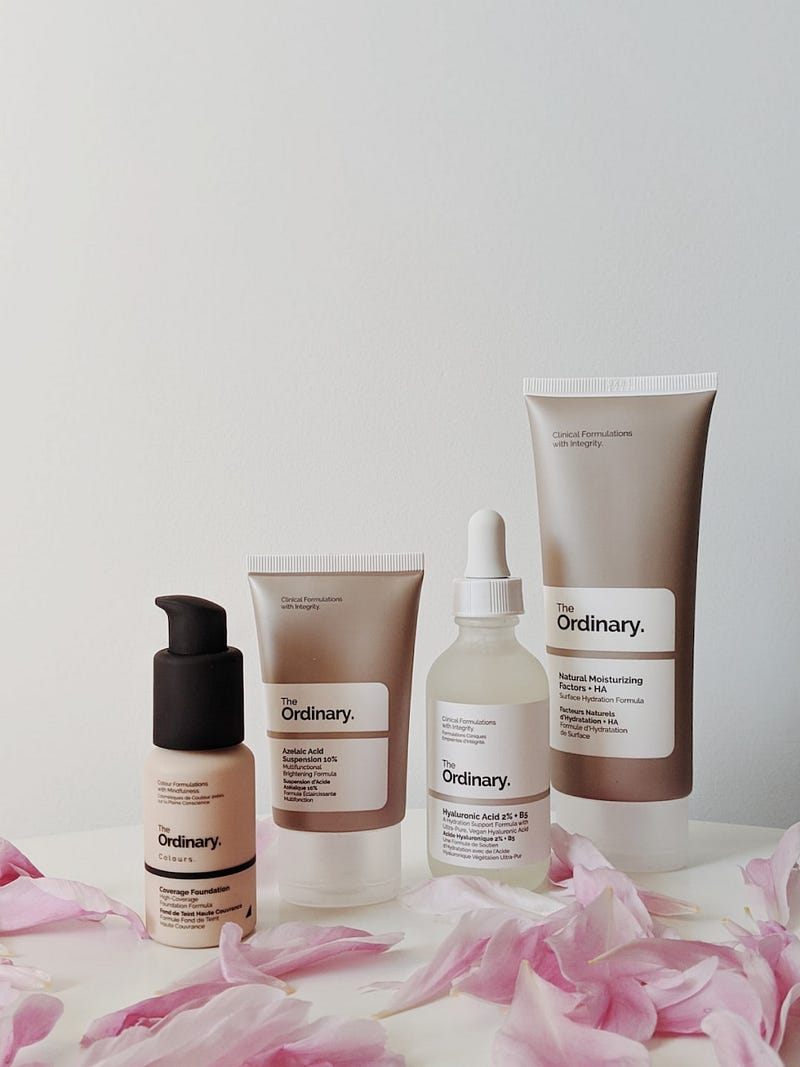# Hormonal Harmony: Understanding the Connection Between Hormones and Acne
Written on
Chapter 1: The Role of Hormones in Acne Development
In the complex workings of our bodies, hormones act as key players, influencing everything from emotional states to metabolic processes. When these hormonal levels become imbalanced, they can lead to the emergence of acne. This article explores the intriguing relationship between hormones and acne while offering actionable steps for managing skin health.
The Hormonal Influence: How Hormones Can Induce Acne
Hormones serve as vital messengers that control a range of bodily functions, including the production of oil in our skin. Fluctuations in these hormone levels—especially during puberty, menstruation, pregnancy, or periods of heightened stress—can trigger an increase in sebum (the skin's natural oil). This excess oil can obstruct pores, creating a breeding ground for acne-causing bacteria.
The Hormonal Factors Behind Acne
The imbalances in specific hormones are often the primary culprits of hormonal acne. Stay tuned for an insightful video detailing how to effectively manage this type of acne.
- Androgens: These male hormones, which are present in all genders, rise during puberty and stimulate the sebaceous glands to produce more oil, often leading to acne.
- Estrogen and Progesterone: These female hormones generally help balance the effects of androgens. However, during the menstrual cycle, their fluctuations can result in breakouts. According to Flo Health, increased progesterone levels can trigger acne in the days leading up to menstruation.
- Cortisol: Commonly referred to as the stress hormone, cortisol can elevate oil production, making stress a frequent trigger for acne flare-ups.
Taking Control: Practical Strategies for Managing Hormonal Acne
Addressing acne often requires a multifaceted approach. Here are several lifestyle adjustments you can implement to help reduce and treat breakouts effectively.
Balanced Nutrition for Hormonal Stability
Fuel your body with a diet rich in nutrients. Incorporate lean proteins, whole grains, fruits, and vegetables while limiting sugary and processed foods to help stabilize hormone levels.
Mindfulness and Stress Management
Since stress is a known contributor to acne, it’s essential to engage in activities that promote relaxation, such as yoga, meditation, or deep-breathing exercises. Carving out time for self-care can significantly aid in maintaining hormonal balance.
Regular Exercise for Hormonal Control
Exercise not only benefits your overall fitness but also plays a crucial role in regulating hormonal levels. Aim for consistent, moderate physical activity to help keep your hormones in check and alleviate stress.
The Importance of Quality Sleep
Deep, restorative sleep is vital for maintaining hormonal balance. Aim for 7 to 9 hours of uninterrupted sleep each night and establish a calming bedtime routine to improve sleep quality.
Personalized Skincare Routine
Customize your skincare regimen to target hormonal acne. Look for products containing ingredients like salicylic acid or benzoyl peroxide, which can help unclog pores and reduce inflammation.

Consulting a Dermatologist
In more severe cases, seeking the expertise of a dermatologist can be invaluable. They may prescribe topical or oral medications, such as hormonal birth control or spironolactone, to help manage hormonal fluctuations effectively.
Patience and Consistency: Keys to Success
Achieving hormonal equilibrium and clearer skin is a journey that requires time, patience, and sometimes a bit of trial and error to discover what works best for your individual body.
Chapter 2: Additional Insights on Managing Acne
In the intricate relationship between hormones and acne, you are the one in charge. Managing acne is a long-term commitment; you might start seeing results in a few weeks or months. Keep in mind that factors that increase oil and sebum production can lead to acne.
You have the ability to minimize breakouts by embracing healthy eating habits and engaging in regular physical activity. In extreme cases, a visit to a dermatologist may be warranted.
Stay tuned for more articles addressing complex acne issues, including recommendations for effective acne treatment products and strategies for tackling stubborn acne.
Thank you for reading! Don’t forget to subscribe to my newsletter, and please like and comment below. I would love to hear about your experiences with acne.
The second video title is "Acne: from teen years to menopause and beyond | The Dr Louise Newson Podcast," which delves into the evolution of acne throughout various life stages.